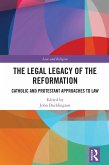States ratify human rights treaties for a variety of reasons. Some commentators defend an honest sincerity of purpose, whereas others might point to material incentives. The contributors to this volume go beyond the ratification puzzle to instead reframe legalization according to Lon Fuller's conceptualization of congruence. Congruence is an interactive variable that measures the continuous efforts of government and the public to shape the law and its implementation. By reframing legalization as an ongoing process, the model created by the authors is used to test several hypotheses about what impacts legalization in Africa more broadly, and in countries such as Mali, Cameroon, Botswana, Zimbabwe, and Tunisia, more specifically. The contributors to this volume demonstrate that the legalization of human rights is never a finished product, but is a moving target influenced by exogenous and endogenous phenomena.
This volume is useful for researchers of genocide, human rights, and atrocity prevention, as well as for those interested in legalization and democratization both within Africa and other regions of the world.
Dieser Download kann aus rechtlichen Gründen nur mit Rechnungsadresse in A, B, BG, CY, CZ, D, DK, EW, E, FIN, F, GR, HR, H, IRL, I, LT, L, LR, M, NL, PL, P, R, S, SLO, SK ausgeliefert werden.









